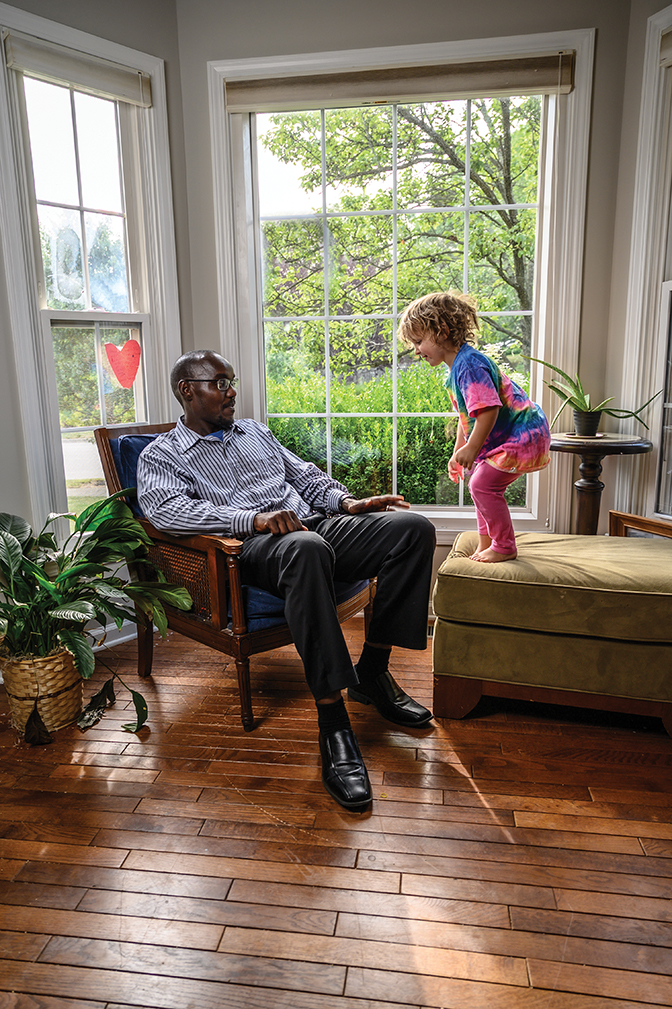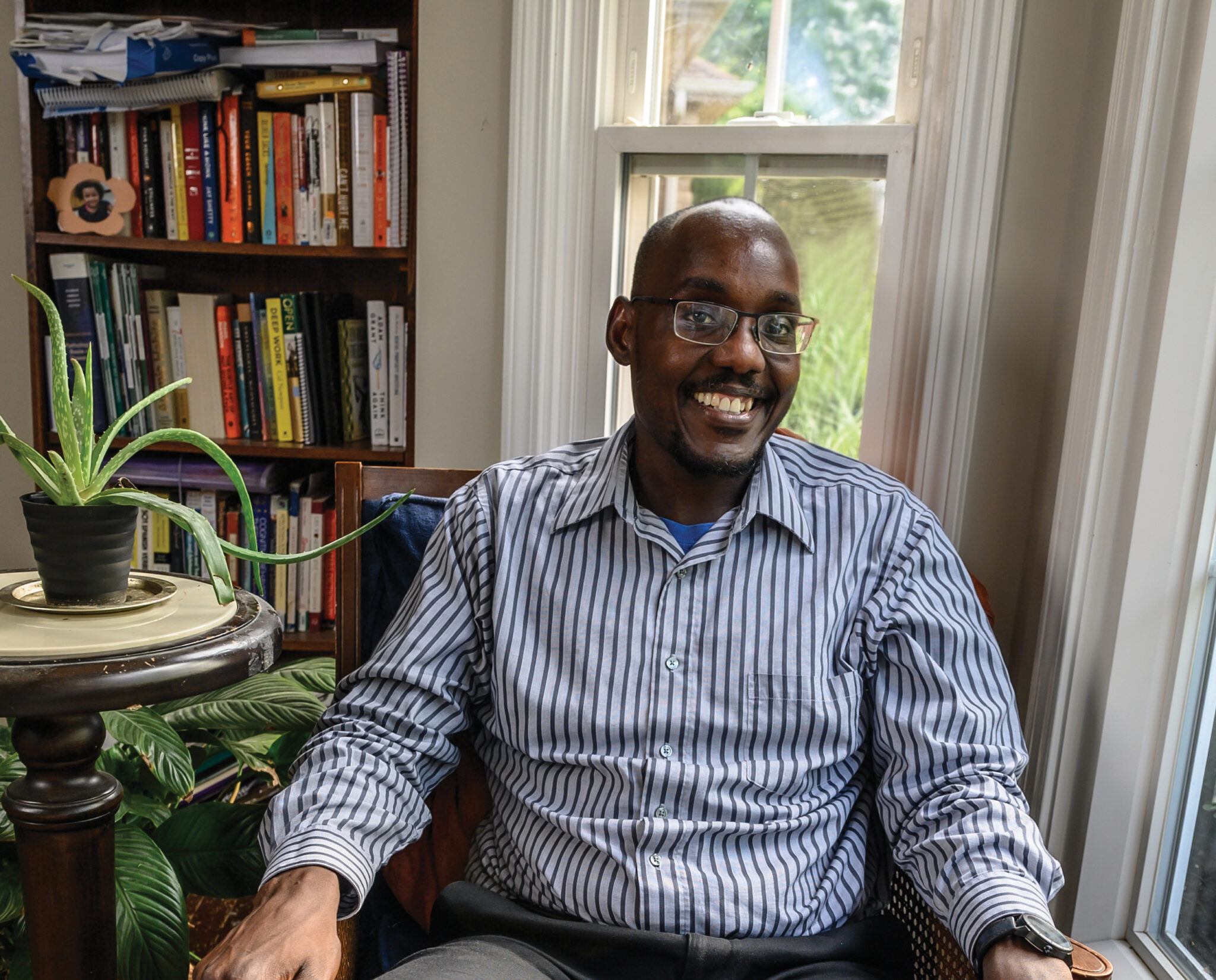Fred Odago ’02 follows a life philosophy to take things slow and be patient in developing his interests. As a child growing up in Kenya, he watched his uncle serve their community as a physician, admiring his work with patients at local clinics. This observation set Odago on the path for a career in the medical field. In 1998, Odago was selected for one of only 30 openings for international students at Berea College, earning his spot over 3,000 applicants that year. This was his first step toward pursuing his dreams.

“Berea opened the door to academia for me,” he said. “It welcomed me into a new country. It was at Berea that I had the chance to participate in Case Western’s summer research program, and my mind was opened to medical research that opened a lot of subsequent doors.”
While at Berea, Odago was part of a community of very talented students brought together from all over the world by the no-tuition promise. He was relieved to find the sense of community and companionship at Berea that he thought he would miss after leaving his Kenyan home. He was surprised by the communal support systems he found at Berea, and Odago still keeps in touch with the host parents with whom he often lived during breaks and holidays.
Now a married father of four, Odago said he also appreciates the close relationship he was able to build with Berea’s faculty. He remembers the names of his favorite professors, even today. “I remember Dr. Ron Rosen and his parasitology and zoology classes,” Odago said. “He was the chair of the biology department while I was there. I remember Dr. Roy Scudder-Davis and his comparative anatomy class. Dr. Matthew Saderholm is still there—he taught me chemistry.”
Odago was impressed by the academic excellence and the approachability of his Berea professors and their ability to make students love what they were learning.
After graduating from Berea College, he spent more than 10 years in different research and laboratory technician positions across the United States before becoming a clinical neurologist at the University of Kentucky. Though his long involvement with academia began with the biology program at Berea, his interest in research and the medical field is ongoing, with the hopes of serving patients of diverse backgrounds.
“When I was in medical school, I was fascinated by the cutting-edge research that was going on in neurology, and I could see patients alongside it. And the service aspect was important to me,” Odago said.
He is excited to be involved in medical research with the potential to change people’s lives such as investigating the cure for Alzheimer’s disease or finding ways to end debilitating migraines.
Odago recounts how his exposure to a variety of fields and experiences helped him narrow down his specific interests. “I worked as a scientist for a biotechnology company; I was a lab technician at the University of Kentucky. I went into a master’s program in toxicology and bio-medical research before starting medical school. It was a long journey.”
An important part of that journey is Berea’s liberal arts ethos and his engagement with diverse disciplines. It’s a mindset he embraced. In his journey from Kenya to the United States, he credits his growth as a person to his curiosity and open-mindedness. Today, that mindset allows him to be an advocate for all his patients.
As an established neurologist, Odago is looking at ways to give back to the community, considering the aspects of diversity and inclusion while furthering his research and practice. “When it comes to American healthcare today, there are lots of people who do not have access to neurological care, and it is one of my goals to serve those demographics,” he said. “I would like to break down those barriers.
“One of my favorite parts of being a neurologist, Odago continued, “is how I am able to significantly change patients’ lives.”


